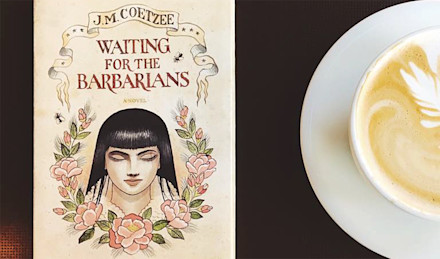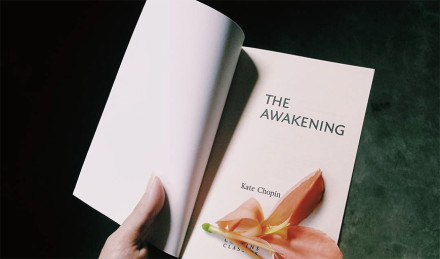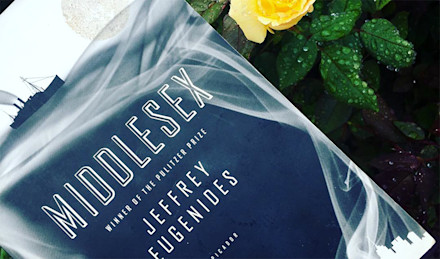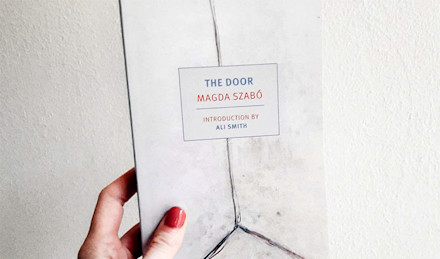We love fall here at Parachute. As the air gets crisp and cool outside, we start layering bedding and throws inside…and then curl up with a good book. With kids back in school, it’s the perfect time to pick up a heady novel or a beloved classic and get back into the learning mindset ourselves.
We’ve selected some of the most thought-provoking reads of our time, both newly stimulating and revered for decades. Because this is the season of change, each of these books explores the theme of metamorphosis. Get cozy, because sometimes the road to change can be uncomfortable.
‘H Is for Hawk’ by Helen Macdonald
Helen Macdonald’s fiercely beautiful story transcends traditional narrative practices, blending memoir and literary meditation. Her language brings to life the wildness flourishing in abandoned airfields, in neighborhood gardens and in our own hearts. A History and Philosophy of Science scholar at the University of Cambridge in England and a practiced falconer, Helen addresses humanity’s primal reactions to death. In “H Is for Hawk,” Helen trains one of the world’s most vicious predatory birds, the goshawk, as a way of coming to terms with her father’s passing. Throughout the story, the goshawk’s shifting moods reflect Helen’s own changing states of grief. This riveting read offers a poignant treatise on our feral impulses while at the same time elevating the sanctity of family.

‘Waiting for the Barbarians’ by J. M. Coetzee
A journey into humanity’s heart of darkness, “Waiting for the Barbarians” takes place in an imaginary but realistically dysfunctional empire. The story’s central character, the unnamed magistrate, leads a simple life until the empire’s secret service proclaims that the nomadic peoples living on the outskirts of civilization, “the barbarians,” are preparing to mutiny. The magistrate is mildly concerned by the capture and torture of the barbarians, but he justifies these practices as the only way to preserve the safety of the empire’s citizens. When a dark-haired barbarian girl is tortured into silence, the magistrate takes her into his care to nurse her back to health. What follows is a haunting tale of one man’s evolution from quiet accomplice to victim of his own society’s oppressive practices. South African novelist, J. M. Coetzee, has invented an astute political fable that sheds light on the tyranny of injustice.

‘The Awakening’ by Kate Chopin
First published in 1899, Kate Chopin’s uninhibited depiction of a married woman’s rebellion against societal norms created shock waves among readers. The story’s heroine, Edna Pontellier, accepts her role as a passive wife and mother until a tropical vacation ignites a fiery passion in her that she cannot stifle. Back at her husband’s sprawling home in New Orleans, Edna struggles to reconcile her burgeoning sexual desires with Victorian society’s restrictive expectations. Kate presciently illustrates the psychological toll experienced by women who revolt against domestic entrapment. Though the novel was kept out of print for more than 50 years, “The Awakening” has since been recognized as a literary classic, and Kate’s brilliance is not lost on the current generation of men and women navigating the evolving dynamics of work and family.

‘Middlesex’ by Jeffrey Eugenides
From a tiny village overlooking Mount Olympus in Asia Minor to the gender-bending burlesque scene in San Francisco, “Middlesex” takes us on an operatic quest to understand the effect of one mutated gene on three generations of a Greek-American family. The callously observant narrator, Cal Stephanides (originally named Callie) is a hermaphrodite growing up in the quiet, suburban neighborhood of Grosse Point, Michigan. Through a number of confused sexual encounters and an inopportune tractor accident, Cal comes to realize his true gender identity as male. A lyrical reinvention of the family saga, Jeffrey Eugenides’ spellbinding novel is about a young adult’s discovery of his true self and attempt to redefine the American Dream.

‘The Door’ by Magda Szabó
This surprisingly candid tale of friendship between two women takes place on a single street in 20th century Budapest. Inspired by Magda Szabó’s own experience, “The Door” centers on the intimate dynamic between Magda, a young Hungarian writer, and her formidable and strangely secretive housekeeper, Emergence. While Magda is observant, literary and spiritual, Emergence is blunt, suspicious and hostile to religious and intellectual institutions. Despite their differences, the two women reach a tenuous understanding that is one of the most perplexing relationships illustrated in literature. Emergence eventually shares her sacred space with Magda, opening the door to her residence which she has never previously shared with a guest. Magda recognizes the gesture as a show of trust, but Emergence continues to cloak her shadowy past in darkness. Szabó’s portrayal of the unique challenge of friendship illuminates both the trials and triumphs of human connection.




